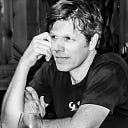The History of “The Man Box”
Two leaders in the field of men’s work made “the man box” the globally recognized term it is today
In 2012, in my capacity as Senior Editor for the Good Men Project, I edited an article titled “Escape the Act Like a Man Box” by Charlie Glickman. In his opening paragraph, Charlie wrote:
“I’ve been teaching workshops on male gender socialization for about 15 years or so. The foundation of my presentation is the Act Like a Man Box, which I learned about from Paul Kivel’s book, Men’s Work: How to Stop the Violence That Tears Our Lives Apart.”
Kivel’s Act Like a Man Box refers to the enforcement of a narrowly defined set of traditional rules for being a man. These rules are enforced through shaming and bullying, as well as promises of rewards, the purpose of which is to force conformity to our dominant culture of masculinity and to perpetuate the exploitation, domination, and marginalization of women and people who are queer, genderqueer and transgender.
In the early 1980’s, Kivel, Allan Creighton and others at the Oakland Men’s Project gave birth to this powerful central pillar of men’s work. They developed the Act Like a Man Box in their work with adolescents in public schools around the San Francisco Bay Area. In 1992, Kivel documented their workshop process in his book Men’s Work: How to Stop the Violence That Tears Our Lives Apart. It was here that Kivel published his act like a man box workshop, graphics, and everything we have come to define around the term.
In Kivel’s own words:
“In the early 1980’s I and others in the Oakland Men’s Project were working in diverse schools facilitating workshops on male and female socialization and violence in relationships. We developed the concepts and visuals of the Act Like a Man box and the Act Like a Lady box from student responses to images of men and women in popular media. We also used roleplays like our Father/son roleplay, and we developed exercises like the Men’s Costs and Men’s Benefits standups.
By the late 1980s we were doing this work not only with young people but with adults — especially men’s groups and adults who worked with young people. All of this was first published in 1992 in Helping Teens Stop Violence (by Allan Creighton and Paul Kivel) and Men’s Work ( by Paul Kivel). The work was widely available, used and adapted around the country.
In the mid 1990's, Tony Porter, the founder of A CALL TO MEN, was doing men’s work in Rockland County, New York, as well as serving as the director of an alcohol and drug treatment program at Nyack Hospital. At that time, a local service organization, Volunteer Counseling Services, invited Paul Kivel to speak. Porter states it was then that he first heard the phrase “the act like a man box.”
Over time, Porter, who was working with populations of men in penitentiaries and other challenging spaces, determined that “the act like a man box” language would not work with these populations.
“Paul was on it, no question about that. He was on it. But the way he was saying it would not work for the men I was talking to. So I took that term, act like a man box, and I shortened it down to the man box.”
In 2010, Porter recorded his now famous TED Talk titled A Call to Men, which to date has been viewed over 2,600,000 times on the TED site alone. Porter drove the man box into global public awareness and made Kivel’s pioneering work “the act like a man box” into a household term “the man box.”
Porter doesn’t mince words about Kivel. He calls him, “A genius.”
“Paul Kivel made a lifetime impression on me. He’s been instrumental in what has become my life’s work. I’m indebted to him, forever,” Porter says.
Paul Kivel and the Oakland Men’s Project gave birth to the conceptual underpinning of “the act like a man box,” giving birth to a central part of men’s work. Tony Porter’s decades of work with men has furthered these ideas and made “the man box,” a globally recognized phrase.
Through decades of hard work and perseverance by these men, the man box has become a powerful and universally understood call for change and growth. And the work continues.
You can reach Paul Kivel at PaulKivel.com
You can reach Tony Porter at A Call to Men
“Break out of the man box with The Little #MeToo Book for Men.” — Tony Porter, A CALL TO MEN
“Mark Greene, in 75 pages, has written perhaps the most important book on masculinity ever!” — Joseph Losi
